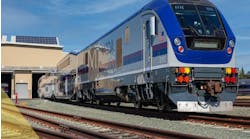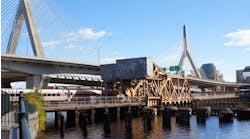Fluor Joint Venture Selected for Boston Green Line Rail Extension Project
Fluor Corp. has announced that a Fluor-led joint venture was selected by the Massachusetts Bay Transportation Authority as the design-build team for the estimated $2 billion Green Line Light Rail Extension in Boston. Fluor will book its share of the contract value into backlog in the fourth quarter of 2017.
“Fluor is pleased to be chosen to lead the joint venture team that will oversee the design and construction of this project,” said Hans Dekker, president of Fluor’s infrastructure business line. “Our team brings an integrated solutions approach to designing and building megaprojects, a legacy of rail experience and a proven track record of delivering complex projects for our clients. We look forward to improving mobility for Boston-area residents.”
The Fluor-led joint venture includes Balfour Beatty Infrastructure Inc., Herzog Contracting Group and The Middlesex Corp.
Working in partnership with MBTA, the project is slated to begin construction in 2018 and open for service in late 2021. The project includes seven new stations including the relocated Lechmere Station, a vehicle storage and maintenance facility and two distinct branches: a mainline branch operating within the existing right-of-way for the MBTA Lowell Line beginning at a relocated Lechmere Station in Cambridge and traveling north to Medford; and a branch line operating within the existing right-of-way for the MBTA Fitchburg Line to Union Square in Somerville.
The light rail service to this corridor will greatly improve local and regional mobility by offering a one-seat ride to downtown Boston, address longstanding transportation concerns, result in fewer automobiles on local roads and help to combat greenhouse gas emissions and other components of air pollution. The Green Line Extension will also support municipal plans for sustainable growth and urban redevelopment and provide residents with faster rides to jobs and other destinations. The projected daily ridership at the seven stations is estimated to be 45,000 by 2030.

